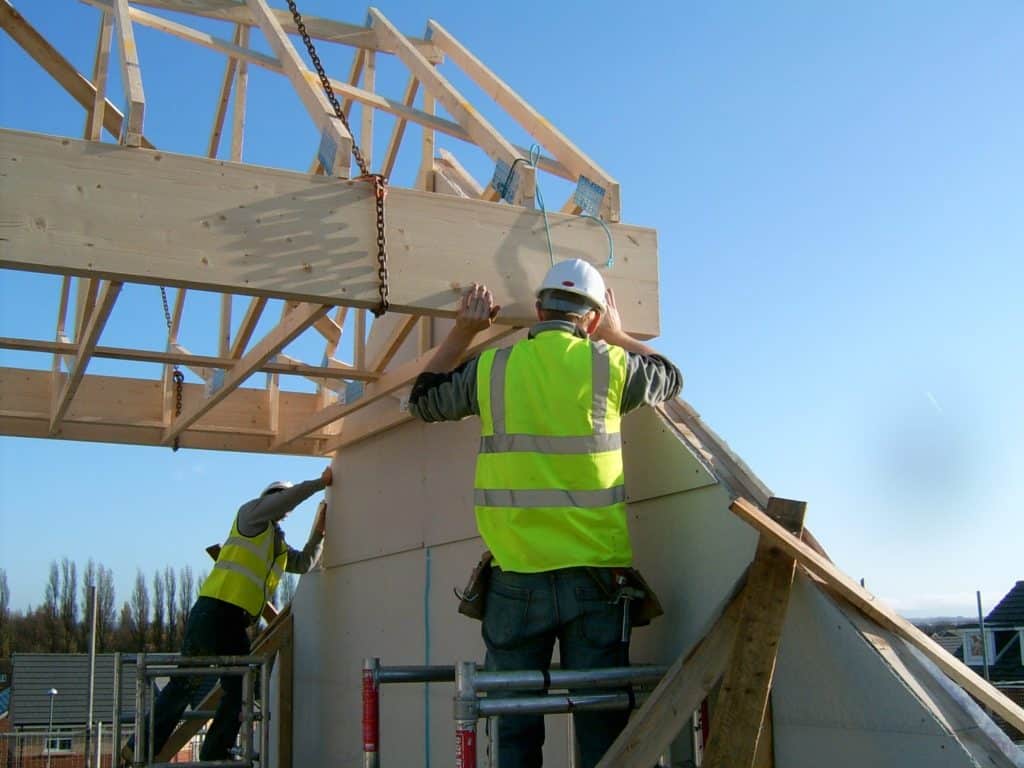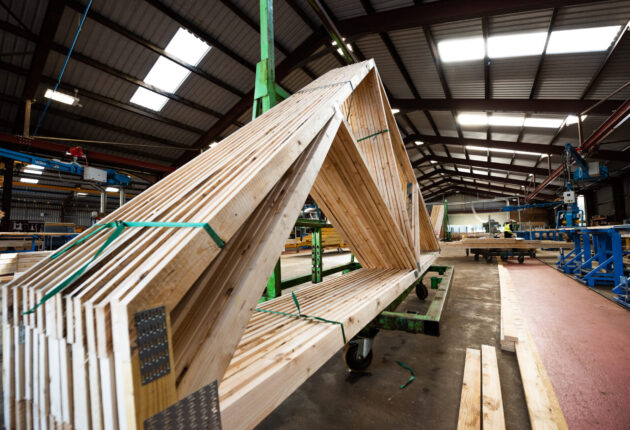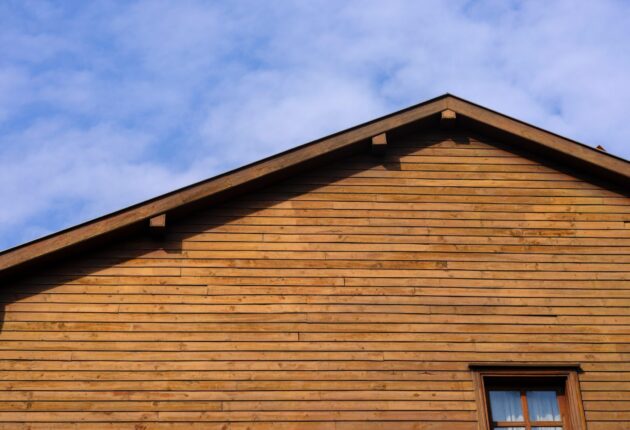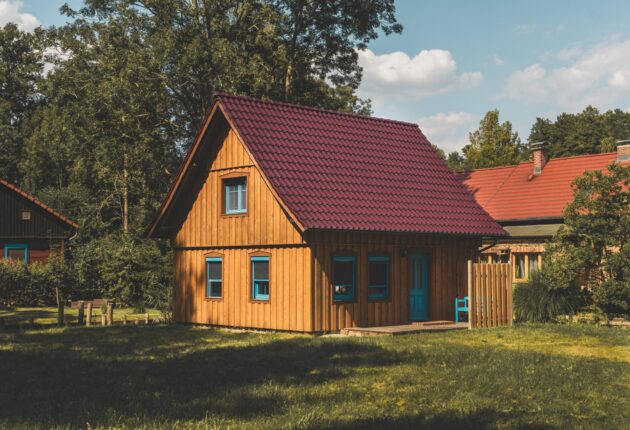Pasquill On Site Safety

Pasquill Goes To Ground On Site Safety
Glenn Darbyshire, Health and Safety Manager for Pasquill, the UK’s largest supplier of roof trusses, discusses some of the safety challenges affecting site teams in roofing installation, and explains why some of the key solutions have their feet on the ground…
According to the Health and Safety Executive, falls are the largest cause of accidental death in the construction industry. They account for 50% of all fatalities in the sector. Indeed, the HSE recommends avoiding working at height whenever possible, pointing out that over 60% of deaths during work at height involve falls, whether from ladders, scaffolds, working platforms, roof edges or through fragile roofs.
Working at Ground Level
Little wonder, then, that site solutions involving working at ground level are warmly regarded by sub contractors and main contractors alike.
In house building a challenge has existed for some time, which has required an improved and safer construction process.Existing masonry gable and party walls can be unstable during construction, particularly when required to support steelwork. Traditional brick and block gable ends and party walls are open to the elements during construction and cannot be erected during certain weather conditions. There is also the danger that they will be insufficiently cured before construction is continued, which can be a major health and safety risk.
The ideal solution is to involve the pre-assembly of structural components at ground level to form the roof system. Working in partnership with a major national housebuilder, Pasquill discovered that what developers require is a configuration including pre-fabricated trussed rafters complete with bracing; with associated metalwork and fixings secured to Glulam timber beams to act as purlins, all in accordance with detailed assembly and construction drawings.
At this stage, the pre-assembled section can then be lifted up by crane to be secured onto pre-fabricated timber spandrel panels which have been supplied as part of the total solution. The spandrel panels are supplied insulated and clad, together with proprietary fixings. This approach, research revealed, would prove ideal for use in gable buildings and house types with a room in the roof or ‘attic’ configuration. Pasquill’s solution is called SafeSpan.
There are four key aspects to the safe use of cranes: planning lifting operations, safe systems of work, supervision of lifting and thorough examination. British Standard BS 7121Part 1 2006 sets out an acceptable standard for managing lifting operations using cranes on construction projects.
Using SafeSpan brings with it more benefits than just a safer working environment and safer construction process. It also offers improved erection efficiencies, improved sequencing of work, reduced build time and full structural calculations and technical support.
Safety Credentials of Spandrel Panels
The spandrel panels used in this approach are supplied prefabricated and, because they are manufactured off-site, they too add to the safety credentials of the solution. In addition, they are delivered to site on a toaster trailer to which they are securely tied individually, with factory fitted slings used to ensure safe handling during offloading and erection. Spandrel panels avoid traditional scaffolding costs.
Site Safety
Roofing contractors are well versed in the safety requirements of roofs during construction. Great efforts are made, for example, on pitched roofing jobs to use scaffolding to prevent people or materials from falling from the edge, or to fit edge protection to the eaves of a roof. However, one area in which their timber supplier can play a crucial role is closer to the ground and involves safe delivery to site and offloading.
Pasquill has recently launched a new initiative in this area called a ‘pre-delivery load plan’, which is designed to help contractors as much as possible. The initiative involves finding out as much as possible about the site’s specific offloading requirements in advance of a wagon being loaded with timber items ready for delivery. The wagon can then be loaded in such a way as to maximise the efficiency of offloading sequencing, thereby complementing the site’s scheduling.
The timber supplier should provide the contractor with details of the weight, physical dimensions and configuration and layout of timber products; trusses must only be loaded to suitable adapted trailers; delivery must be to the nearest hard standing surface; telescopic cutters must be used to release the banding and rope following contractors’ instruction; delivery must be aborted if unloading cannot be safely achieved. If at any stage the driver has to mount the vehicle, he/she must do so under the authority and supervision of the site manager with a fall arrest system in place.
In the case of unloading of roof trusses the timber supplier should advise on unload order and the safe system of unload. The supplier’s driver should inspect the load prior to unloading to ensure that it is secure. If it is deemed unsafe, the load may have to be returned to the manufacturer. Here at Pasquill we supply truss packs secured to the trailer with blue 3 core rope, and the trusses are pre-slung with purple 1 tonne 7:1 lifting slings, which are reachable from ground level. Once the order of unloading is agreed between the slinger and driver, the slinger will attach the purple lifting slings to the crane hooks. The crane will then take up the slack of the lift. On instruction from the site responsible person the driver will release the transport straps on the side being unloaded. The driver will cut the individual rope attaching the pack to the bars. This must be carried out from a safe position using a closed blade pruning staff. The crane will then lift the truss pack from the bed of the trailer. At this stage it is vital that no one stands in the danger area where the trusses could fall.
It is crucial that house builders and other contractors are able to have complete confidence in the health and safety policy of their roof truss supplier. The supplier should be a member of the SAFEcontractor scheme. Check for other evidence that the company makes health and safety a priority: here at Pasquill we have been awarded a silver certificate by ROSPA again this year.
With the recent upturn in the fortune of the house building sector and the expected acceleration of work on site that brings, health and safety can never be too high a priority.
For further information please contact:
Lokesh Patel, Marketing Manager, Pasquill, Tel +44 (0) 02476 438 507




